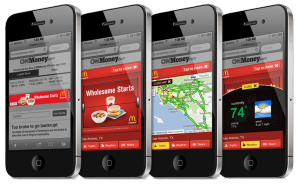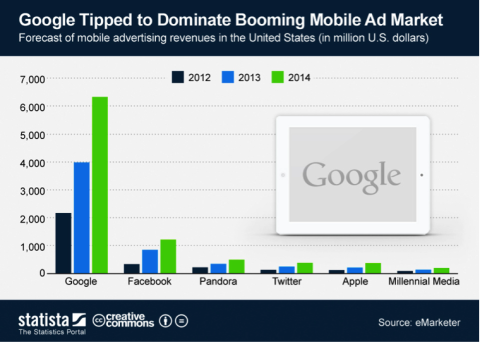Smartphones now comprise 57% of the mobile market in the United States. By next year, there will be more mobile devices than there are people in the world and more mobile phones than desktop PCs.

The Google Factor

All that smartphone usage leads to smartphone shopping. While strolling the aisles, 49% of us compare prices, 44 percent read reviews of stuff while we shop, and 34 percent are using their phones to check the store’s inventory.
Gender differences in shopping: In a new study by Millennial Media and comScore, findings show men are more likely to use phones to check product availability, compare prices, find deals or make online purchases. Women are more likely than men to use phones in stores to text or call friends about products, send pictures of products, or research product features.
Mobile-Optimized Sites and Apps Necessary
Those that will win in mobile will have sites that are responsive and won’t have roadblocks like Flash. I was working with a client recently, and I tried to view her website on my iPad. Because her site was built in Flash, it was not at all accessible on any Apple devices.
Right now, people spend more time on apps than mobile websites. Tablets seem to be the online shopping tool of choice. Important features include side-by-side product comparison, 360-degree zoom, customer ratings, and an easy checkout process are most important to shoppers.
So let’s go mobile!

